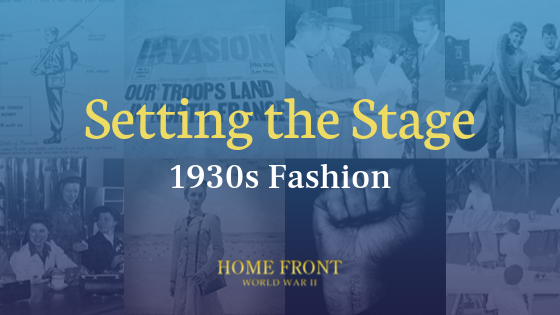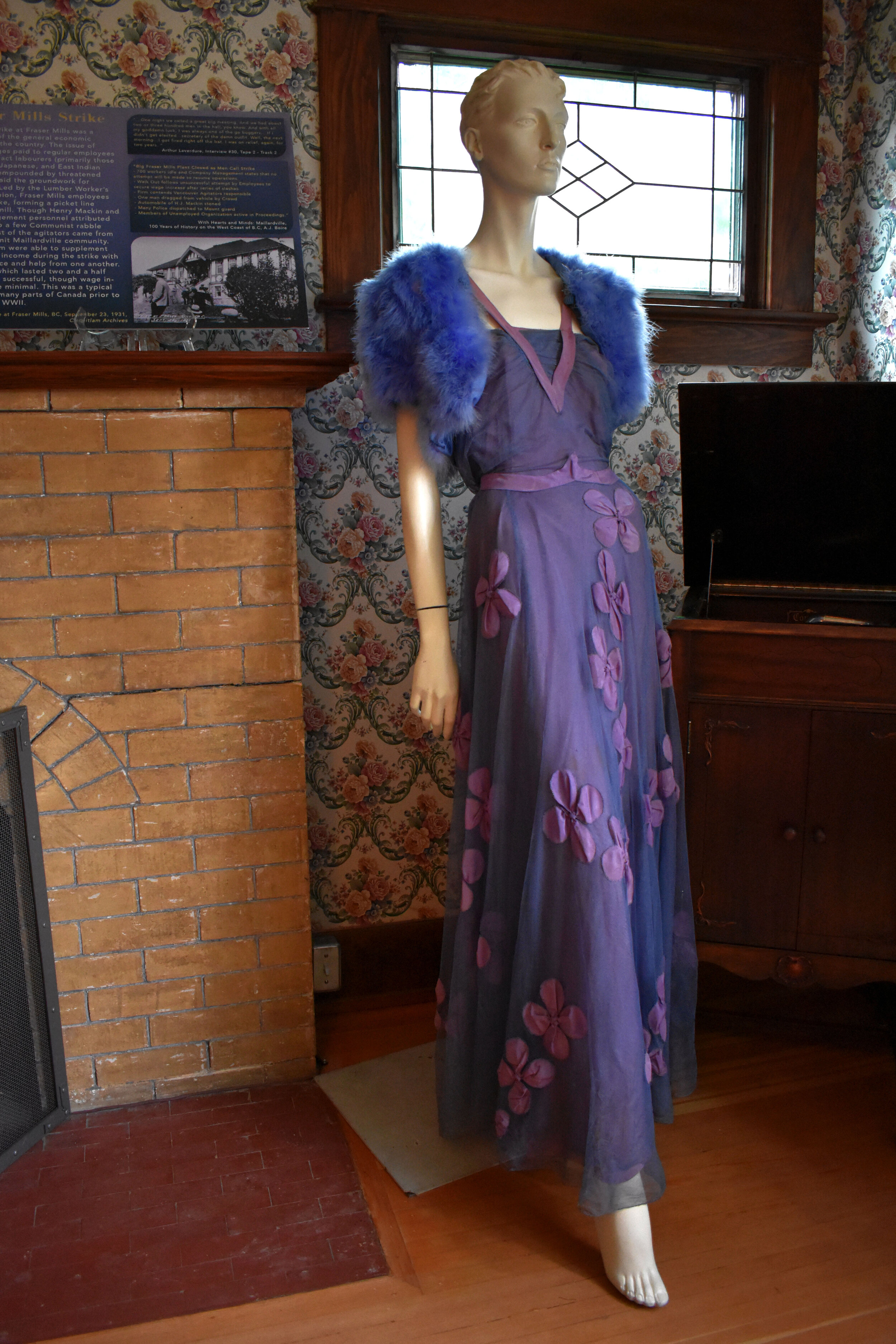1930s Fashion
Women’s fashion of the 1930s was a distinct change from that of the 1920s. A fuller figure replaced the slim, androgynous cuts of the 1920s. While more skin was covered in the 1930s, clothing hugged the body more than the previous decade. Early in the ‘30s, dress hems changed to expose some ankle and subtly accentuate a long, slender leg. In the later years of that decade, the emphasis in women’s dresses was a small waist. Sleeves were puffed and skirts flowed away from the body to make the waist look smaller. Corsets had lost popularity during the 1920s, but did not disappear altogether; the emphasis on a small waist continued throughout the 1930s and beyond.
Evening wear, too, focused more on showing off the shape of women’s bodies. Often gowns of the 1930s were backless and made of fluid, figure-hugging material like satin. Evening wear of the 1930s also saw the emergence of more colours like light blue, salmon pink, or peach, rather than the standard black dress.
Make sure to come check out our exhibit and see examples of women’s fashion in the 1930s and 1940s in person!
The Second World War broke out in 1939, twenty-one years after fighting ceased in the First World War. WWI left belligerent countries broke and fatigued. The 1920s and 1930s presented their own ups and downs, including extreme global economic booms and busts. Though there were hints at the time, we can see through hindsight the lead up to the beginning of WWII throughout the 1930s. In this blog series, important local, national, and international economic and cultural events and attitudes are discussed as Canada and the world prepares to engage in another massive global conflict.




